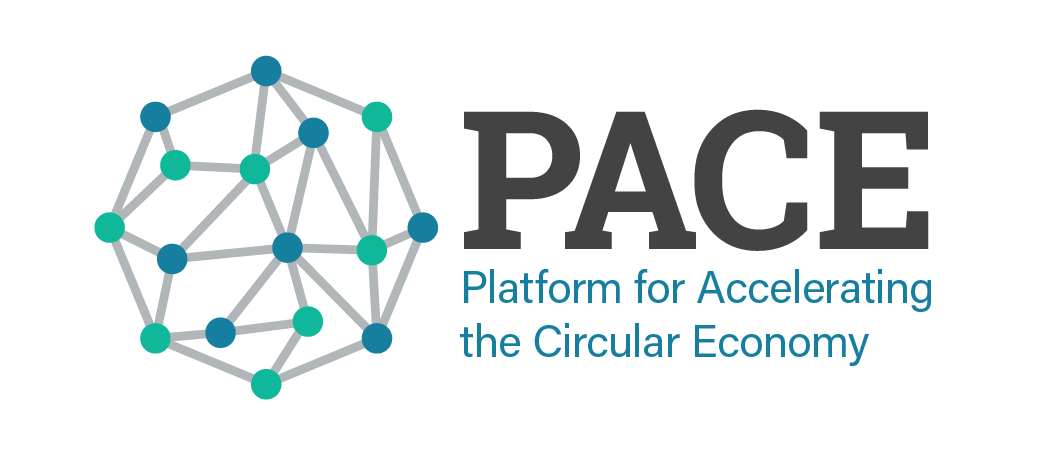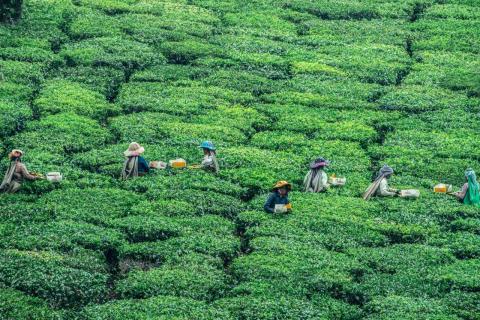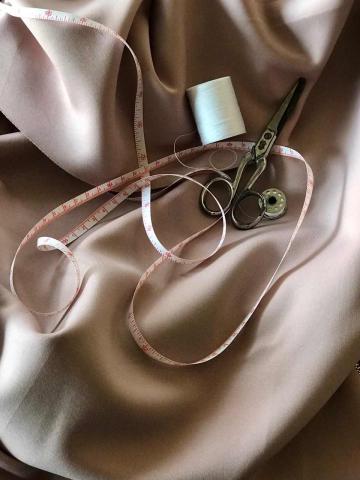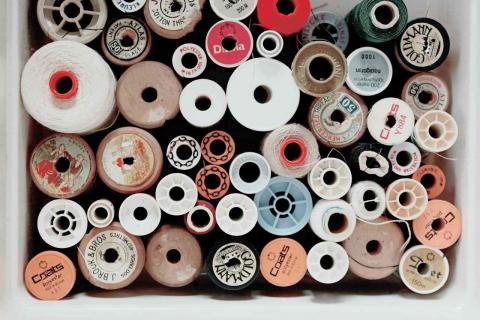Furniture as a Service (FaaS)
This action aligns with the following Calls to Action from the Circular Economy Action Agenda for Textiles
-
4. Guide and Support New Business Models for Environmental, Financial, and Social Triple-Win
Ambition
Furniture as a service (FaaS), is a furniture subscription service offering customers home furnishing solutions that meet their needs, including design, maintenance, and repair. When no longer needed by one customer, the furniture is cleaned, refurbished, and made ready for the next customer. When the furniture has been reused as many times as possible the materials and components are recycled.
Objectives for 2021
In 2021, furniture leasing model was tested in six European markets operated by the franchisee Ingka Group. The FaaS business model is still being developed and in 2021-22 tests will continue with the ambition to offer scalable, affordable solution that is good for both people and the planet.
Partners
The Ingka Group
____________________________________________________________
More Information:
Technologies for Upcycling Cotton and Cellulosic Waste
This Action aligns to the following Calls to Action from the Circular Economy Action Agenda for Textiles
8. Make the recycled fibers market competitive
6. Strategically plan collection, sorting, and recycling operations
Ambition
To address the textile waste challenges, Lenzing Group is working on technologies that allow to upcycle cotton waste and post-consumer cellulosic waste. Specifically, the REFIBRA™ technology allows Lenzing to utilize both pre-consumer waste (e.g., cotton scraps from production of cotton textiles) and post-consumer waste (e.g., used textiles) as raw materials. Moreover, to increase the upcycling scale, Lenzing as a leading global supplier of wood-based specialty fibers is collaborating with Södra, a world-class pulp producer in developing technologies for an industrial-scale use of post-consumer cellulosic waste. Together, they developed pulp OnceMore® which will subsequently be used as a raw material for the production of Lenzing’s TENCEL™ x REFIBRA™ branded specialty fibers.
Objectives
To support the upcycling activities, the first objective is to enhance the collection and sorting of cotton-scraps and used textiles. The next objective is to enhance the production technologies for pulp from the aforementioned materials, as well as increasing the growth share of TENCEL™ X REFIBRA™ used in textiles. These objectives will further support one of Lenzing’s sustainable innovations targets: all fibers with recycled content offered by Lenzing contain a share of post-consumer waste by 2022. Lastly, during 2022, a new investment will ten-fold the production capacity of OnceMore® pulp and reach a higher level of recycled textile content. The goal is to process 25,000 tons of textile waste per year by 2025 and offer a OnceMore® pulp based on wood material and 50 percent recycled textile material.
Partners
Lenzing Group, Södra
Greening with Jobs - World Employment and Social Outlook
This Action aligns with the following Calls to Action from the Circular Economy Action Agenda:
- Integrate and advance decent work in the transition to a circular economy for electronics (Electronics, CTA 10; Textiles, CTA 9; Plastics, CTA 9)
Ambition
The report ‘Greening with Jobs - World Employment and Social Outlook 2018’ examines environmental sustainability in the world of work to support a strengthening of the global and regional partnerships in the area of skills development for a green transition. It aims to promote cross-border knowledge-sharing with regional and international approaches to skills development for the green transition, which can in turn address the competitiveness concerns of individual countries.
Objectives
This edition of the World Employment and Social Outlook focuses on how climate change and environmental degradation will impact the labour markets, affecting both the volume and quality of employment, and quantifies the shifts expected to take place within and between sectors. It shows that there is scope for policies in the world of work to advance environmental sustainability, and for environmental policies to ensure decent work. It acknowledges a coherent and integrated legal framework is a step in this direction and provides policy recommendations that combine decent work issues with environmental regulations, and provide workers with the right set of skills to transition to sectors with employment growth, and also to better jobs. Moreover, it underlines the urgent need to improve the understanding of the mechanisms through which a country-specific policy mix can have an impact on skills development for the green transition. In recognition of this need, the ILO is following up on the analysis with a view to developing detailed policy recommendations for each country that could lead to technical assistance to the countries surveyed.
Partners
ILO
New Cotton Project
This Action aligns with the following Calls to Action from the Circular Economy Action Agenda for Textiles
8. Make the recycled fibers market competitive
6. Strategically plan collection, sorting, and recycling operations
4. Guide and support new business models for environmental, financial, and social triple-win
Ambition
The New Cotton Project harnesses collaboration and cutting-edge technology to create circular fashion. This project demonstrates a circular model for commercial garment production with a consortium of brands, manufacturers, supplies, innovators, and research institutes. The project is recapturing the valuable raw materials in discarded clothing and regenerating them back into high-quality, cellulose-based fibres that can be spun into new yarn, woven into new fabric, and designed into new clothes – again and again. The project also focuses on textile waste collection, sorting, and regeneration into textile fibres, as well as end-of-use apparel with take-back programmes.
Objectives
The project has been launched in October 2020. The objectives includes focusing on fiber processing and testing yarn production.
Partners
Fashion for Good, Aalto University, adidas, Frankenhuis, H&M Group, Infinited Fiber Company, Inovafil, Kipas Textiles, REv, Research Institutes of Sweden, Tekstina, XAMK.
Full Circle Textiles Project
This Action aligns with the following Calls to Action from the Circular Economy Action Agenda for Textiles
3. Encourage the market to use less clothing, and for longer
8. Make the recycled fibers market competitive
10. Investigate the socio-economic impacts for a circular economy for textiles
Ambition
The Fashion for Good initiated Full Circle Textiles Project brings together a consortium of key industry stakeholders to demonstrate the viability of innovative technologies and enable these solutions to scale. The project addresses two clear problems:
(1) Reducing the amount of textiles going to waste
(2) Alleviating the resource strain on virgin materials through the recycling of used textiles.
Objectives
Following the innovators comparative assessment phase in 2020, the second phase of the Full Circle Textiles Project moves from assessment to implementation, by inviting selected innovators to produce cellulosic output from waste textiles that will be processed into fibres, yarns and eventually end garments by December 2021. At the end of the project, key learnings will be published to be utilised and shared across the industry and with consumers alike. While the project will be formally concluded at that point, the aspiration is for these learnings to be adopted diffusely to accelerate the scaling of the technology, which would facilitate the connection to post-project financiers, and the offtake discussions with brands.
Partners
Fashion for Good, Laudes Foundation, Kering, PVH Corp, Target, Birla Cellulose
Innovation Platform
This Action aligns with the following Calls to Action from the Circular Economy Action Agenda for Textiles
4. Guide and support new business models for environmental, financial, and social triple-win
1. Incentivize and support design for longevity and recyclability
Ambition
The Fashion for Good Innovation Platform aims to connect sustainable innovations with brands, retailers and funders to bring new ideas and technologies from niche to norm. There are three programmes suitable for businesses at different stages of maturity:
(1) The global and Asia Accelerator Programmes; nine-month programmes designed to help selected innovators scale;
(2) The Scaling Programme for bespoke support and access to expertise, customers, and capital;
(3) The Good Fashion Fund to catalyse access to finance for shifting to scale to more sustainable production methods.
Objectives
The Fashion for Good Innovation Platform runs the 9-month global and Asia Accelerator Programmes, initiating introductions to industry leaders, facilitation of institutional and alternative financing, providing a support team of dedicated technical and commercial mentors, networking opportunities, and the chance to become part of the Fashion for Good Alumni Community for start-ups focusing on innovations in fashion sustainability, circularity, and transparency in 2021. The platform also supports innovators through its scaling programme and several foundational projects, driving pilots and supply chain implementation with partner organisations.
Partners
Fashion for Good, Laudes Foundation, Adidas, C&A, CHANEL, BESTSELLER, Galeries Lafayette Group, Kering, Levi Strauss & Co., Otto Group, PVH Corp., Stella McCartney, Target, and Zalando, and regional and affiliate partners Arvind Limited, Birla Cellulose, HSBC, Norrøna, vivobarefoot, Welspun and W. L. Gore & Associates
Accelerating Circular Fashion Economy
This Action aligns with the following Calls to Action from the Circular Economy Action Agenda for Textiles
1. Incentivize and support design for longevity and recyclability
4. Guide and support new business models for environmental, financial, and social triple-win
Ambition
Through their work in Accelerating the Circular Fashion Economy, Closed Loop Partners aims to scale a sustainable fashion economy by researching and investing in innovations on how we make, sell and consume products. Specifically, Closed Loop Partners is exploring smart planning systems, reuse and resell technologies, low impact material science, IoT and blockchain solutions to track a product’s life cycle and advanced recycling technologies to ensure that clothing gets a second, third or infinite lease on life.
Objectives
Closed Loop Partners provides support to six leading sustainable fashion companies in their portfolio whose work revolves around resale, renew, repair and material science innovations. Moreover, their appearances at global events such as the Financial Times’ Business of Luxury and the Vogue Business and Shopify Sustainability Forum will support their efforts to raise awareness on the social, economic and environmental benefits of a transition to a circular fashion economy.
Partners
Closed Loop Partners
Circular Economy Employment Modelling
This Action aligns with the following Calls to Action from theCircular Economy Action Agenda
- Integrate and advance decent work in the transition to a circular economy (Textiles, CTA 9; Electronics, CTA 10)
Ambition
Circular Economy Employment Modelling is an open access model that aims to measure the employment impacts of policies and sectoral actions for the circular economy. When locally-focused data is provided as input, this model can present the outcomes of circular economy interventions in any jurisdiction.
Objectives
The dynamic simulation model developed has been calibrated to the Finnish context to produce the report Circular Jobs in Finland - Modelling employment impacts resulting from circular economy interventions, published in November 2020. This report explores the outcomes of implementing circular economy interventions for selected products in consumer electronics and appliances, textiles, food, mining and scrap metals, forestry and paper production, and buildings.
Partners
International Institute for Sustainable Development (IISD), Sitra
Sustainable Business Model Innovation Framework
PACE Partner TNO is contributing to the following Calls to Action from the Circular Economy Action Agenda:
-
Guide and Support New Business Models for Environmental, Financial, and Social Triple-Win (Electronics, CTA 4; Textiles, CTA 4; Plastics, CTA 5)
Ambition
The Sustainable Business Model Innovation Framework aims to support organizations to make a systemic shift to sustainable business. It assists the steps of the business model innovation process to support decision-making and attitudes towards circular and sustainable innovations. It combines multi-actor and multi-value business model design with multi-level analysis from the national, regional, sector and value chain economic structures, as well as impact and lifecycle analysis and material flow models and approaches.
Objectives
TNO has expanded its work on Sustainable Business Model Innovation. Currently, a portfolio of several projects on ‘collaborative business modelling’ has been set up and a broader team is working on several national and international applications in circularization of, among others, Smart Industry (Industry 4.0, Materials Passports and a circular business model typology), flooring industry, small food supply chains and food waste. In 2021, the focus lies on the expansion of the portfolio on Collaborative Business Modelling, on the concept for governance of the Materials Passports and on the community of practice in circularity and servitization in Smart Industry.
Partners
TNO, BoP Inc, Nyenrode Business University, The Next Organization, University of Twente
Rethinking Ownership
PACE Partner Sitra is contributing to the following Calls to Action from the Circular Economy Action Agenda:
- Guide and Support New Business Models for Environmental, Financial, and Social Triple-Win (Plastics, CTA 5; Textiles, CTA 4; Electronics, CTA 4)
Ambition
The overall ambition of Rethinking Ownership is to change the narrative on product ownership and circularity. Through this action, Sitra seeks to support businesses in adopting producer ownership models to reduce the consumption of materials and extend product-life. Additionally, it aims to provide information for decision makers in the EU on how the producer ownership models and the EU's sustainable product policy framework are key for mainstreaming circular business models.
Objectives
Rethinking Ownership's report has been published in December 2020 and it outlines how, by 2030, companies will have transitioned from simply selling products to renting, maintenance and returns. Sitra is now organizing workshops, studies and events on the topic.
Partners
Sitra
Pagination
- Page 1
- Next page










